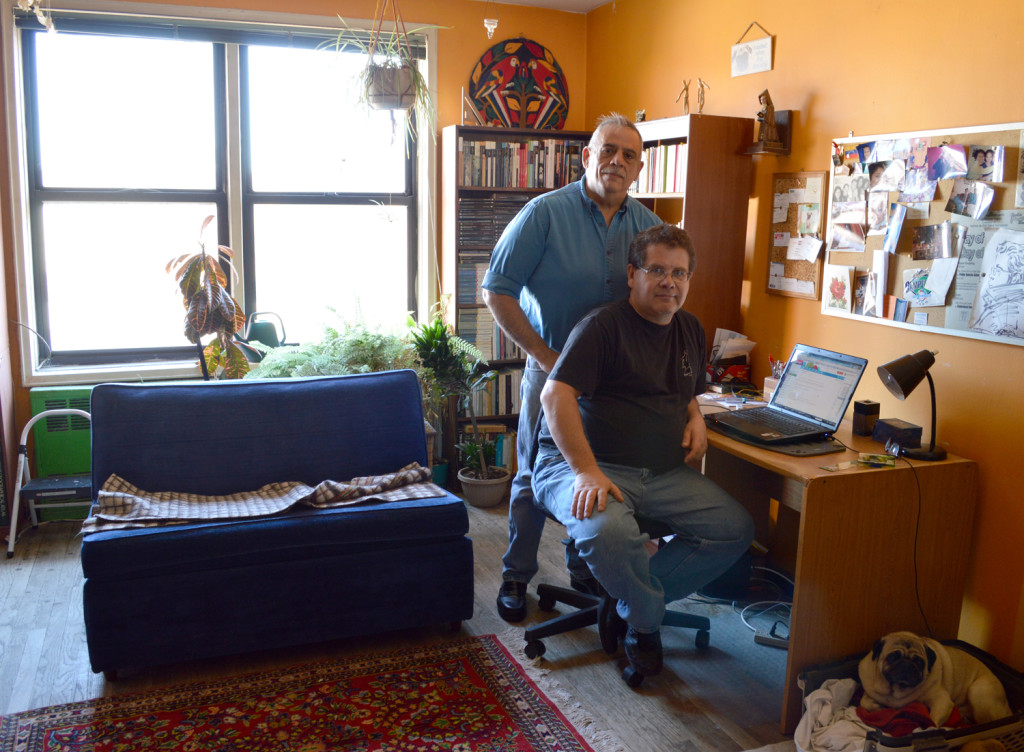A joint reporting project originally published on BuzzFeed, this article was written by Fi2W editor Von Diaz.
In May, the Repertorio Español on Manhattan’s Upper East Side hosted a reading of Pablo García Gámez’s play Oscuro, de Noche. Set in Caracas, Venezuela, the play chronicles the circumstances surrounding the death of Kenny, a young man gunned down while riding his motorcycle. I’m seated next to García’s husband, Santiago Ortiz.
Before the lights come down, 52-year-old García walks over from his director’s box to greet us. He’s in a long-sleeved black button-up shirt and jeans and wears wire-rimmed glasses, his graying light-brown hair neatly trimmed. Ortiz, 58 years old, tall, barrel-chested, and wearing a yellow collared shirt, looks longingly at García. As Ortiz watches him walk away he sighs, “Ay, mi papi.”
García welcomes the audience of 100 or so people, beaming with pride. An hour or so later, the misty-eyed crowd gives a standing ovation. The performances are gripping and transport you to a fateful night, exploring complex themes of police corruption, journalistic integrity, love, family, and things that happen under the cover of darkness. In the subsequent Q&A, García tells the audience the play is based on the true story of a young man in Puerto Rico.
But that isn’t exactly true. The story is based on a real young man — Kenny, García’s nephew — but he lived in Venezuela, and García never met him. For the last 20 years, in fact, he’s been unable to leave the United States due to his immigration status. Oscuro, de Noche, “dark, at night,” has been García’s reality for more than two decades. The play seems to be his attempt to recreate an experience he could not be a part of, the actors portraying emotions he can only guess at because he’s been away for so long.
García and Ortiz celebrated when the U.S. Supreme Court struck down the Defense of Marriage Act on June 26. After living in the U.S. for 20 years, García did not have a green card and had no means of legal employment; and despite their legal marriage in Connecticut, the couple had lived in constant fear of Pablo being deported to his native Venezuela. Like tens of thousands of same-sex binational couples across the country, they saw the court’s decision as the answer to their prayers for equality with heterosexual immigrant couples.
García didn’t jump a fence to enter the U.S. He didn’t come here looking for a better job or fleeing political persecution. Like many other immigrants to the U.S., gay and heterosexual alike, he fell in love and has risked family and career in order to remain in the U.S. with Ortiz, forced to choose between his love and his life. And even now, their struggle continues.
Keep reading this article on BuzzFeed.
Fi2W is supported by the David and Katherine Moore Family Foundation and the Ralph E. Odgen Foundation.



